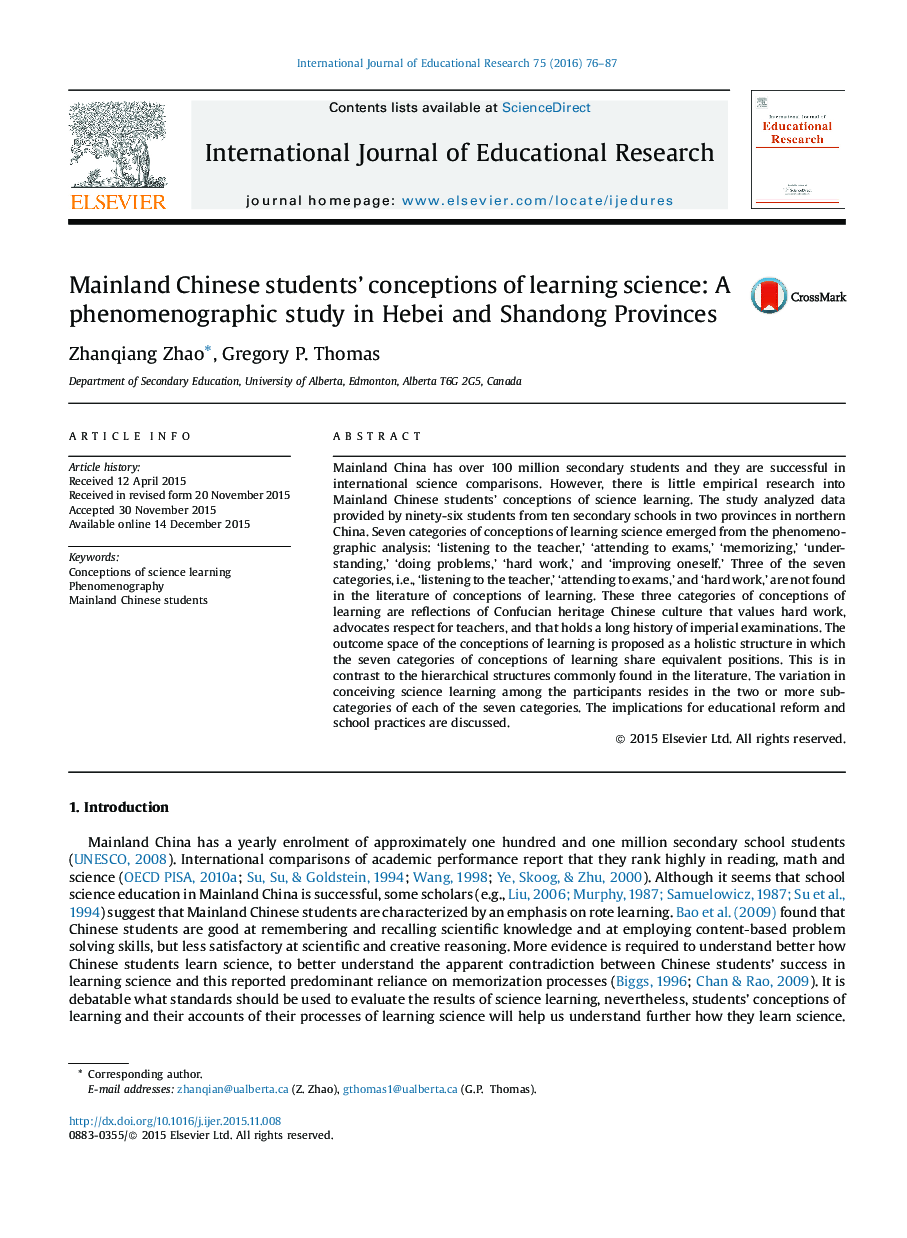| Article ID | Journal | Published Year | Pages | File Type |
|---|---|---|---|---|
| 356888 | International Journal of Educational Research | 2016 | 12 Pages |
•Mainland Chinese (PRC) students posses various conceptions of learning science.•PRC students’ conceptions are similar and different to those previously reported.•The outcome space for the PRC students’ conceptions is non-hierarchical.•PRC students’ conceptions of learning science reflect Confucian heritage culture.
Mainland China has over 100 million secondary students and they are successful in international science comparisons. However, there is little empirical research into Mainland Chinese students’ conceptions of science learning. The study analyzed data provided by ninety-six students from ten secondary schools in two provinces in northern China. Seven categories of conceptions of learning science emerged from the phenomenographic analysis: ‘listening to the teacher,’ ‘attending to exams,’ ‘memorizing,’ ‘understanding,’ ‘doing problems,’ ‘hard work,’ and ‘improving oneself.’ Three of the seven categories, i.e., ‘listening to the teacher,’ ‘attending to exams,’ and ‘hard work,’ are not found in the literature of conceptions of learning. These three categories of conceptions of learning are reflections of Confucian heritage Chinese culture that values hard work, advocates respect for teachers, and that holds a long history of imperial examinations. The outcome space of the conceptions of learning is proposed as a holistic structure in which the seven categories of conceptions of learning share equivalent positions. This is in contrast to the hierarchical structures commonly found in the literature. The variation in conceiving science learning among the participants resides in the two or more sub-categories of each of the seven categories. The implications for educational reform and school practices are discussed.
